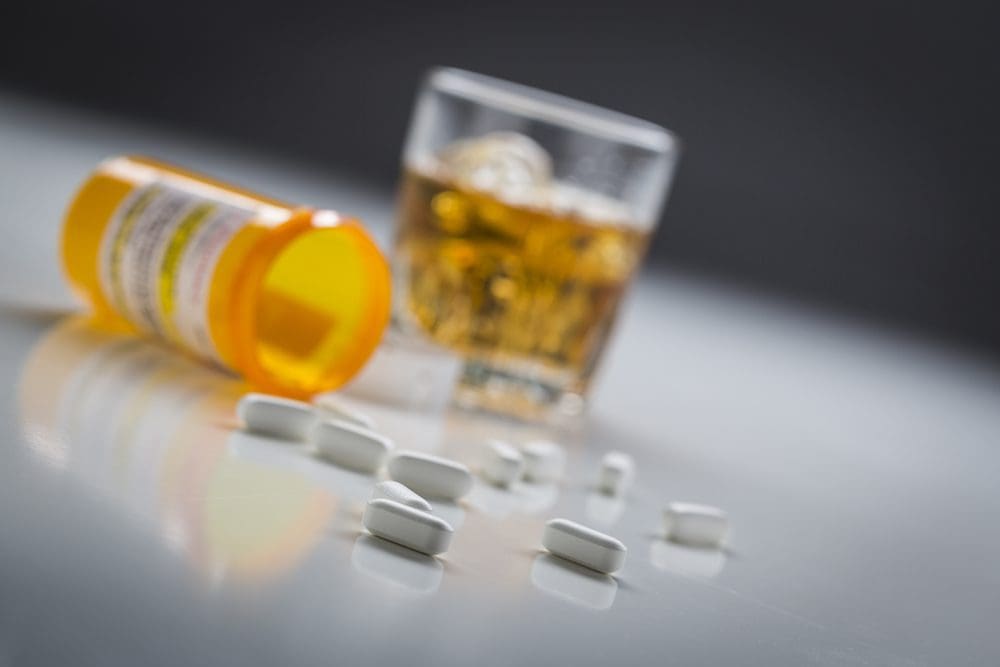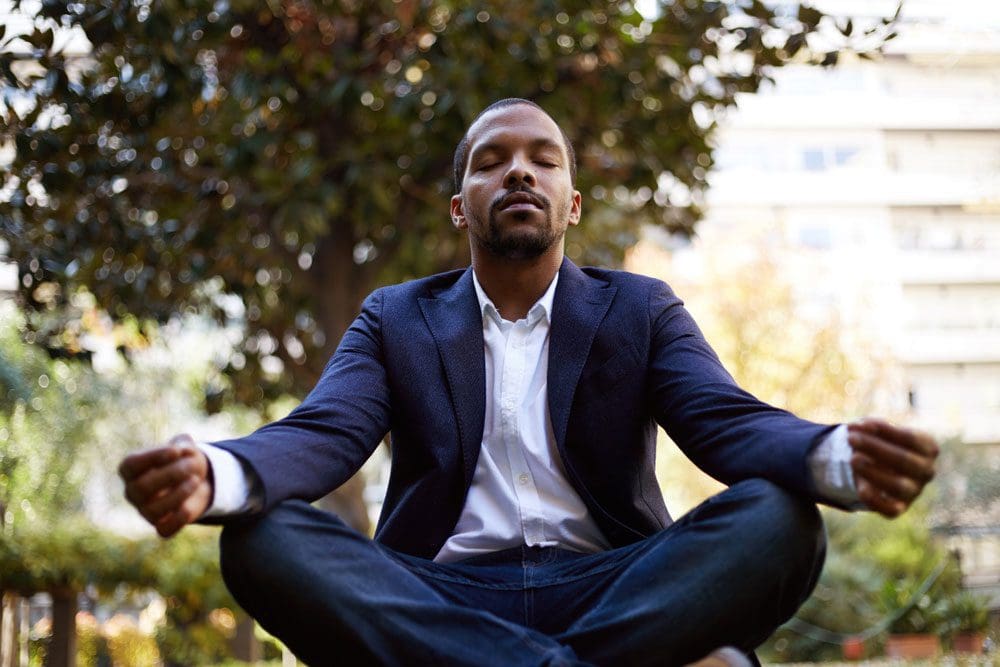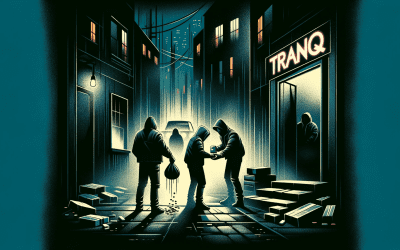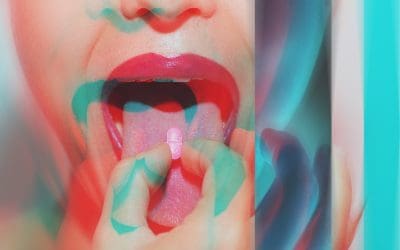How to Manage Anxiety While in Recovery
Anxiety is fear. Our hearts race, our palms sweat and ours bodies release extra stress hormones. No matter how irrational our fear seems to others, it doesn’t change our very real struggle with anxiety. When drugs and alcohol are involved, it adds another layer to ours levels of anxiety. Let’s look at 4 tips on how to manage anxiety in recovery.
Anxiety 101
We know that anxiety is a feeling of worry or dread. When we face stressful situations, it’s natural to experience anxiety. But for some people, it can be an ongoing mental health concern. Anxiety may impact your personal life, your work life and your relationships with loved ones as well as the world at large.

You may experience symptoms such as:
- heart palpitations
- consistent feeling of being on high alert
- difficulty sleeping and/or exhaustion
- rapid breathing
- chest pain
- lack of concentration
- nausea
- feeling uneasy and needing reassurance frequently
- headaches
- increased sweating
If you or a loved one consistently deal with anxiety, click here to take a quick, private screening for generalized anxiety disorder.
Addiction 101
Drug addiction and/or alcohol addiction can certainly change the direction of life. If you or a loved one are facing these battles, it’s likely they have influenced your health, your behavior, your decisions and your relationships. Both alcohol abuse and drug abuse can start out recreationally, but you may find yourself quickly spiraling out of control.
If you have a dependency on drugs and/or alcohol, you may experience symptoms such as:
- Not being able to cut back or stop
- Consumption of substances because of mental or emotional distress
- Increased tolerance
- Physical withdrawal symptoms
- Sudden changes in appetite or sleep patterns
- Deterioration of physical appearance and hygiene
- Problems in relationships and/or at home or work
- Engaging in secretive or suspicious behaviors
- Poor or dangerous decision-making

Your body and your mind can become addicted to these substances. If you’re struggling with addiction, you may also face a battle for your mental health. Anxiety and depression are commonly linked to drug abuse.
What to expect in addiction recovery
If you or your loved one have taken the first step toward recovery, great! That means you are one step closer to reclaiming your life and to lifelong sobriety.
Take your first step towards recovery.
But you may still be struggling with your addiction and considering how to best direct your life path’s. If so, you may be curious about – or you may even doubt – the power of treatment.
You can expect support and resources such as:
- An individualized program will be outlined by a team of addiction specialists
- A personalized assessment of your habits and addiction
- A complete physical to address your overall wellness needs as well as your detox program if needed
- Individual and/or group therapy
- Medication support if needed
- Access to wellness activities
- Access to nutrition counseling
Tips to help you manage anxiety in recovery
Once you decide to reclaim the direction of your life and steer it away from drugs and alcohol, you’ll need coping mechanisms you can depend on. These can help you when you’re feeling anxious, especially if you have a dual diagnosis of an anxiety disorder and a substance addiction.
Tip #1: Deep breathing exercises
When you’re dealing with anxiety, you tend to take rapid, shallow breaths. But because your mind is racing and your anxiety has taken your mind elsewhere, you may not even be aware of it.

Try these steps to help you breathe more deeply and recenter yourself:
- Try to relax your shoulders and your mind.
- Inhale slowly and deeply through your nose.
- Watch your belly expand with each breath.
- Exhale slowly through your mouth. Keep your jaw relaxed as you do this.
- Repeat this exercise for a few minutes as often as needed.
It may take some time to get used to this exercise, but there’s no need to rush yourself. It may take work to rely on it to help you let go of your anxiety, but keep practicing. Gradually make deep breathing a part of your day to help yourself maintain focus.
This is vital to your recovery because it helps remember your health should be your top priority, not addictive substances.
Tip #2: Yoga
Once you’ve worked on your deep breathing exercises, take that expertise onto the mat. Yoga focuses on healing from the inside out and relies on deep, focused breathing for optimal practice. It can help you harness relaxation and take a more calm and steady frame of mind into your day as you face your struggles.

Look for Yoga of 12-Step Recovery meetings in your area. These sessions provide a holistic approach that “address the physical, mental and spiritual disease of addiction” through the lens of the 12 steps program.
Tip #3: Grounding exercises
When you experience anxiety attacks, you feel as if you lack control of your experience in the world around you. That feeling is often exacerbated with the use of drugs and alcohol. The grounding technique helps you regain that control.

Here’s how to do it in 5 steps:
- Look around for 5 things you can physically see around you.
- Find 4 things you can touch.
- Listen for 3 things you can hear in your surroundings.
- Take a sniff 2 things you can smell.
- Find 1 thing you can taste.
Being grounded in the moment helps you to ward off anxiety and focus on your immediate experience. This is especially important to your recovery, as it helps you take steps toward building a new life path.
Tip #4: Activity
Being active is a multi-faceted approach to helping you manage anxiety in recovery.

Doing so can:
- serve as a distraction to substance abuse
- help you reduce stress and anxiety
- produce endorphins to help reset your brain and regulate your emotions
You don’t have to run a marathon or lift heavy weights each day. Take it one step at a time. Aim to get moving for 20 minutes a few times a week. That first day may be quite the challenge, but that next day will be that much easier.
We can help you
At The Blackberry Center, you will have the opportunity to begin the journey to lifelong recovery from drugs and alcohol in our state-of-the-art facilities.
If you or one of your loved ones is struggling with addiction, we can help. We use a personalized approach to addiction treatment. Our focus is on treating the disease, not the symptoms. We put our patients first every step of the way.
Our substance abuse-only treatment programs include detox, residential and partial hospitalization program. Our on-site rehab programs focus on a comprehensive recovery approach. They address your physical, mental and spiritual needs for optimal wellness. Your needs are unique. We treat you as such.
Reach out for help today
You may be struggling with long-term addiction. Or you may be fighting strong temptations. We can meet you where you are in your fight for sobriety.
We welcome you to our treatment center. From support groups to individual therapy treatment options, we are here to fight the battle with you.
Reach out to us online today. You can also call us at 888-512-9802.




